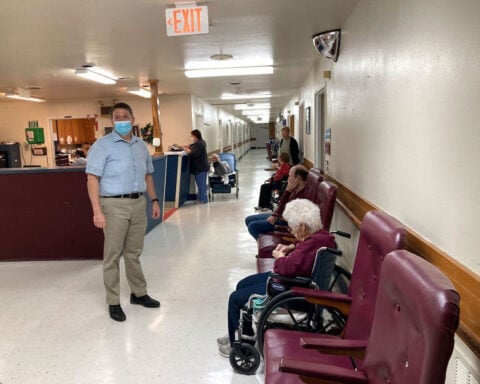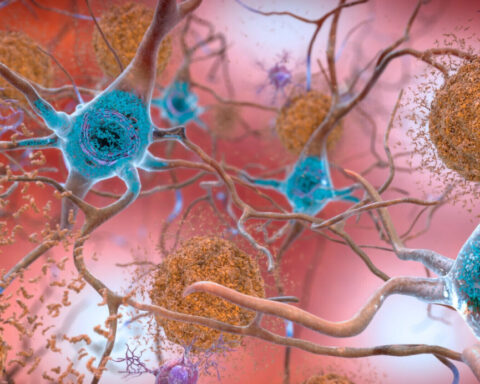While sensationalized disorders like anorexia, bulimia and binge eating capture headlines, a lesser-known but exceedingly common disordered behavior hides in plain sight. Compulsive exercise afflicts up to 80% of those with eating disorders, yet few recognize the immense dangers it poses. Understanding this prevalent symptom is key to providing proper support for recovery.
Also called excessive exercise or over-exercising, compulsive exercise involves working out excessively in a rigid, rule-bound way, both as part of an eating disorder and as a standalone issue. Those who suffer feel internally driven or compelled to exercise for long hours daily, even when injured, ill or against strong medical advice warning of consequences. The compulsion provides a false sense of control.
Unlike the dramatic weight loss seen in high-profile disorders like anorexia, compulsive exercise often flies completely under the radar. But it can be just as dangerous, significantly increasing the risk of stress fractures, joint damage, heart problems, and even sudden death due to arrhythmias. It also powerfully reinforces disordered thoughts, distracts from underlying psychological issues, and prevents proper treatment.
“The pervasiveness and severity of compulsive exercise behaviors in eating disorders is vastly underestimated,” says Ovidio Bermudez, psychiatrist and Chief Clinical Officer of Eating Recovery Center. “It is an incredibly self-destructive symptom that maintains and progresses the illness.”
Up to a staggering 80% of those with eating disorders also struggle with compulsive exercise patterns, according to some estimates. Yet only around 5% of treatment centers directly address this common symptom in their programs.
This massive blind spot further fuels misconceptions among both sufferers and clinicians that excessive exercise is a healthy form of self-care rather than recognizing it as a serious, addictive behavior that actively sabotages eating disorder recovery.
“There is so little discourse and education around it that many do not realize their exercise behaviors are a recognized eating disorder symptom,” says psychologist Jennifer Matthews, who specializes in treating the condition. Without proper validation, those affected often feel dismissed or ashamed, rather than empowered to openly acknowledge their struggles and seek help.
In a cultural environment fixated on thinness, fitness and pushing past limits, compulsive exercise is able to thrive unchecked. Those in its grip frequently overexercise for hours each day, deeply believing this punishing ritual makes them “good” for having tightly controlled their body’s urges.
This mentally corrosive mindset manifests in related dysfunctional behaviors like feeling compelled to immediately “burn off” 500 calories through intense exercise any time they dare to eat something perceived as “bad” or “unhealthy.”
Over years or even decades, the compulsive exercise habit becomes deeply entrenched. “I honestly didn’t know life any other way,” says Kelley Schuh, who struggled with anorexia and compulsive exercise behaviors for over 15 years. “I couldn’t even imagine what it would be like to not exercise constantly. I feared the worst would happen if I ever stopped.”
But taking the difficult yet crucial step of ceasing the compulsive exercise is key to recovering from the eating disorder driving it. “Eliminating this major coping mechanism helps break the restrictive and purging cycles that maintain disordered eating,” explains Bermudez. “The excessive exercise obsession can then be shifted and channeled into developing healthy behaviors.”
The journey to overcome compulsive exercise begins with cultivating greater self-awareness. Carefully monitoring one’s own exercise-related attitudes and noticing internal rules, rituals or anxiety around potentially missing workouts can help reveal the unhealthy patterns lurking below the surface.
“It’s important to listen deeply when loved ones, friends or medical providers express concern about your exercise behaviors or routine,” further advises Matthews. Their feedback provides an objective counterbalance to the internal distortions compelling sufferers to push past safe limits.
Speaking openly about one’s exercise habits and inner struggles also allows family members and friends to provide much-needed accountability during recovery. “The secrecy surrounding my compulsive exercise allowed it to grow increasingly severe over many years, unchecked,” acknowledges Schuh. “I had to consciously bring it out into the light before I could truly begin to heal.”
Potential warning signs of compulsive exercise include:
- Exercising nearly every day, or multiple times a day, without breaks for rest
- Continuing to exercise rigorously even through injury, illness or against strong medical advice
- Feeling intense anxiety, agitation or guilt around missing planned workouts or “burning off” specific calorie targets
- Following a repetitive, rule-bound exercise routine from which one rarely deviates
- Refusing to skip workouts or curtail exercise habits when advised by concerned loved ones
- Making exercise a higher priority than socializing, school/work, hobbies or time with family
- Hiding the full extent of one's exercise routines from others to avoid intervention
- Feeling the need to "earn" food through excessive exercise rather than listening to internal hunger and fullness cues
Seeking treatment for compulsive exercise requires finding therapists and treatment centers experienced with this under-addressed symptom. Facilities should utilize techniques like exposure therapy to reduce exercise dependence and build healthy relationships with food and mindful movement. Supports like intensive outpatient and residential programs may be needed to safely halt the compulsion initially while new coping skills develop.
With the right team guiding recovery, the tyranny of compulsive exercise can finally be broken. "It was a long journey to find balance and self-compassion," reflects Schuh. "But life on the other side is beautiful beyond words."

 Trump has begun another trade war. Here's a timeline of how we got here
Trump has begun another trade war. Here's a timeline of how we got here
 Canada's leader laments lost friendship with US in town that sheltered stranded Americans after 9/11
Canada's leader laments lost friendship with US in town that sheltered stranded Americans after 9/11
 Chinese EV giant BYD's fourth-quarter profit leaps 73%
Chinese EV giant BYD's fourth-quarter profit leaps 73%
 You're an American in another land? Prepare to talk about the why and how of Trump 2.0
You're an American in another land? Prepare to talk about the why and how of Trump 2.0
 Chalk talk: Star power, top teams and No. 5 seeds headline the women's March Madness Sweet 16
Chalk talk: Star power, top teams and No. 5 seeds headline the women's March Madness Sweet 16
 Purdue returns to Sweet 16 with 76-62 win over McNeese in March Madness
Purdue returns to Sweet 16 with 76-62 win over McNeese in March Madness








